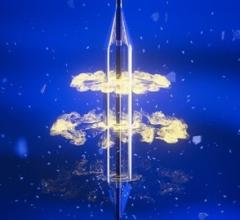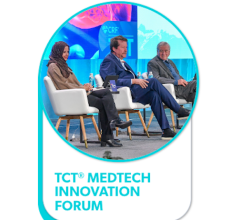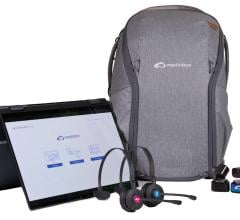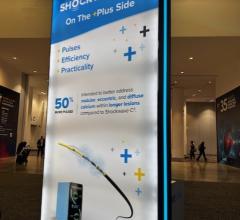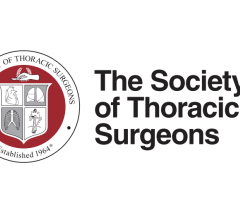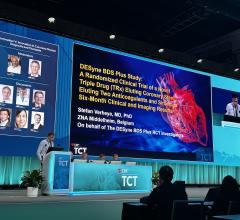
The Impella CP with SmartAssist heart pump is a minimally invasive, temporary heart pump that uses real-time intelligence associated with improved survival and heart recovery. (Graphic: Business Wire)
September 17, 2022 — Results of a new per-protocol analysis of the ST-segment Elevation Myocardial Infarction Door-To-Unload (STEMI DTU) pilot trial data show significantly reduced infarct size in patients who received left ventricular (LV) unloading with Impella CP for 30 minutes prior to their percutaneous coronary intervention (PCI) compared to patients who received LV unloading followed by immediate PCI. The data were presented today during the 2022 Transcatheter Cardiovascular Therapeutics (TCT) conference in Boston by Navin K. Kapur, MD, executive director of the Cardiovascular Center for Research and Innovation (CVCRI) at Tufts Medical Center and the principal investigator for the STEMI DTU pivotal randomized controlled trial.
The new analysis compared infarct size in 32 patients from the STEMI DTU pilot trial who met all inclusion and exclusion criteria. All patients experienced an anterior STEMI and completed one of two treatment protocols – LV unloading with Impella CP followed by immediate PCI (n=15) or LV unloading with Impella CP for 30 minutes prior to delayed PCI (n=17). Cardiac magnetic resonance (CMR) imaging performed three-to-five days after PCI was used to determine infarct size (IS) normalized to the area at risk (AAR). Results showed that the infarct size normalized to the area at risk was significantly lower in the delayed PCI group compared to the immediate PCI group (IS/AAR: 47±16 vs. 60±16, p=0.02), which translates to a 22% relative and 13% absolute reduction in IS/AAR.
“Results from this analysis are early, but promising, indicating that in STEMI patients, unloading the left ventricle with Impella CP for 30 minutes and delaying PCI could potentially help improve patient outcomes by reducing damage to the heart muscle and helping prevent heart failure,” said Dr. Kapur.
Myocardial damage can lead to heart failure. Every 5% increase in infarct size is associated with a 20% increase in relative hazard for all-cause mortality or hospitalization for heart failure within one year after a primary PCI (JACC, 2016). Coronary artery disease is the number one cause of death in the United States and 47% of women and 36% of men over the age of 45 will die within five years of their first heart attack (Circulation, 2019).
The STEMI DTU pilot study demonstrated for the first time that LV unloading using Impella CP with a 30-minute delay before reperfusion via PCI is feasible, safe and not associated with an increase in infarct size. The pilot study led to the STEMI DTU pivotal randomized controlled trial, which began in 2019 and is actively enrolling patients. The pivotal trial is testing the hypothesis that compared to PCI alone, LV unloading for 30 minutes prior to PCI can reduce myocardial damage and future heart failure-related events due to a heart attack.
ABOUT IMPELLA HEART PUMPS
The Impella 2.5 and Impella CP with SmartAssistare U.S. FDA approved to treat certain advanced heart failure patients undergoing elective and urgent percutaneous coronary interventions (PCI), such as stenting or balloon angioplasty, to reopen blocked coronary arteries.
Impella 2.5, Impella CP, Impella CP with SmartAssist, Impella 5.0, Impella LD, and Impella 5.5 with SmartAssist are U.S. FDA approved to treat heart attack or cardiomyopathy patients in cardiogenic shock and have the unique ability to enable native heart recovery, allowing patients to return home with their own heart.
Impella heart pumps are not FDA approved for use in STEMI patients without cardiogenic shock.
For more information: www.abiomed.com

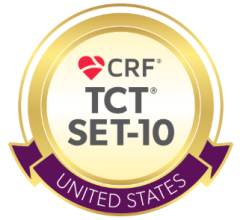
 October 31, 2025
October 31, 2025 
